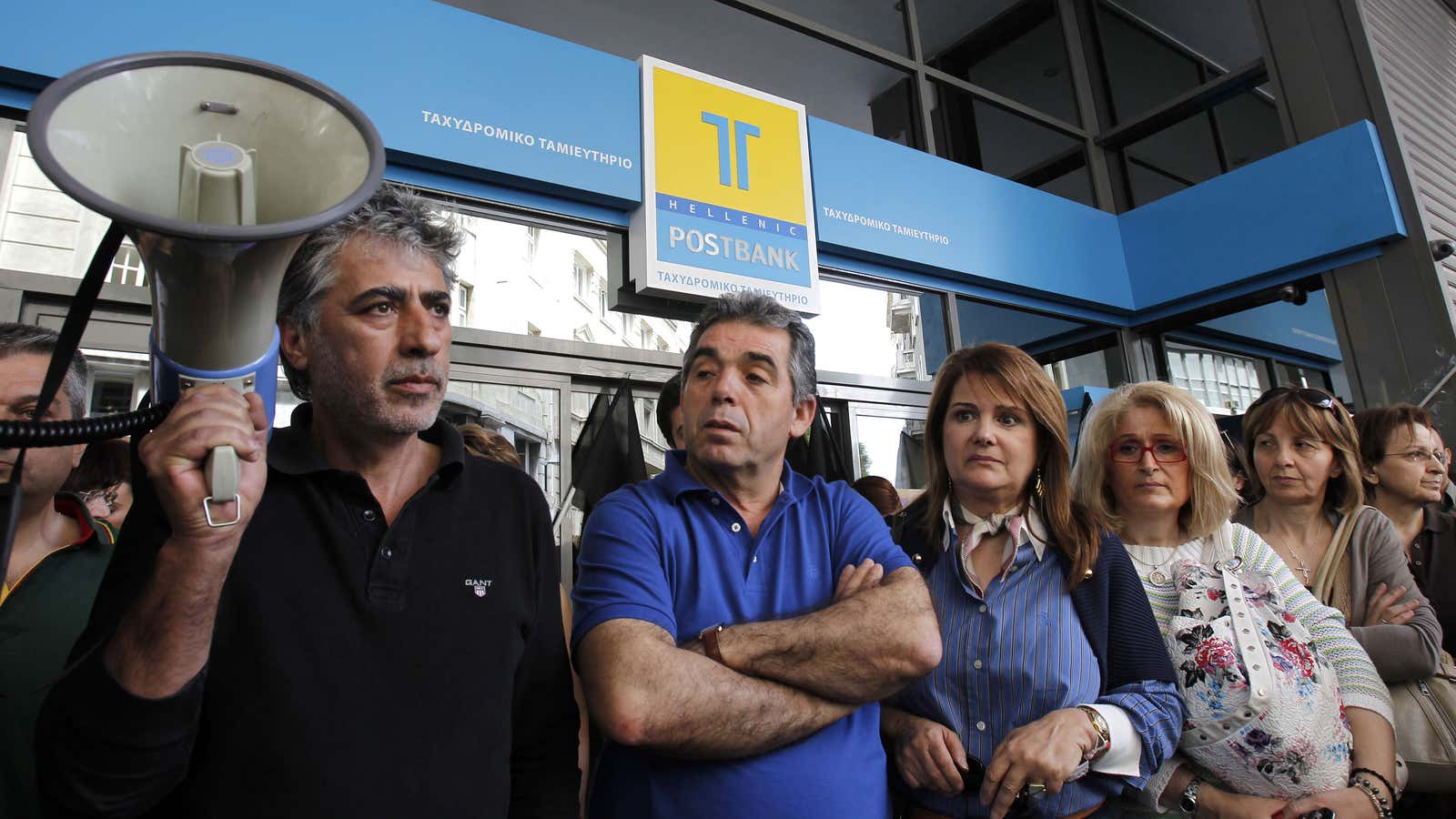The bond buyback plan that Greece announced today should make most people who have a stake pretty happy. The country will use €10 billion ($13 billion) to buy back some of its bonds for 30-40% of their face value (paywall)—this being all they are worth in the secondary market—but investors who sell their bonds back to Greece will get higher quality bonds issued by the EU bailout fund.
That’s good news for those desperately praying that the euro-zone will remain whole. And hedge funds that bought the debt back when it was even cheaper can still hold on to it in the hopes of one day getting paid back in full. But euro-area banks that bought it at face value are grinding their teeth.
As Greece was about to default, euro area banks wrote down the value of any Greek bonds they had. Today, Greek banks hold an estimated €15 billion (at present value) of Greek debt. Other euro area banks are believed to hold about €5 billion.
Now as the euro-zone economy contracts, more people and businesses are failing to repay loans, and so European banks have been pressured to maintain healthy credit profiles. At the same time, European leaders are demanding that banks hold more, high-quality capital in reserve at all times. The result has been that European banks are strapped for cash, and those in worse financial shape (Greek and Spanish banks, for instance) feel the pressure even more acutely.
Hence the ploy: European leaders are betting that their new regulations will lure euro area banks to cut their losses even further on Greece. By promising them €0.30-€0.40 per dollar today, while they’re tight for funds, versus the full value of those bonds tomorrow, EU leaders are hoping that banks—and particularly Greek banks—will take the fall for the country, by trading in their poorly rated bonds for securities that look better on their balance sheets right now.
In other words, don’t think about the Greek bailout simply as other governments piling in to soak up the cost. Rather, think of it as them finding ways to spread the cost around the economic system—and the banks as a particularly easy target.
Needless to say, Greek banks aren’t too happy about the plan. “We…don’t want to be the suckers and lighten up our positions and have other people hide behind the curtains,” says Petros Christodoulou, Deputy Chief Executive Officer for the National Bank of Greece. “This is going to give us a short gain up front but penalize our profitability going forward.”




